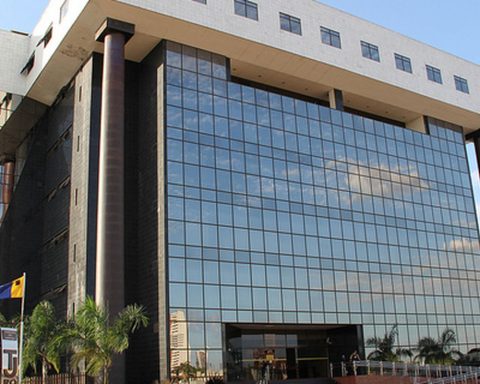The Information and Communication Technology Software and Services Industry (ISSTIC) in Brazil recorded an estimated production of US$ 53.3 billion in 2021, a figure that accounts for 82.8% of the total services produced by the ICT sector and points to for a growth of 6.5% in relation to the observed in the previous year.
Data is part of the report Software and ICT Services Industry in Brazil: characterization and recent trajectorylaunched this Tuesday (19) by the Ministry of Science, Technology and Innovation (MCTI) and prepared by the team of researchers at the Softex Observatory, the entity’s study and research unit.
According to the folder, the survey shows that the Brazilian Information and Communication Technology (ICT) market has grown at a rate above the global sector. Also according to the study, new technologies should boost this segment and become increasingly relevant for the advancement of Brazilian ICT in the coming years. In addition, the country has increased the offer of connectivity infrastructure support services.
“The pandemic has accelerated digital transformation and this has required the sector to organize itself. The information we had was information that the sector told us, we needed to identify the real numbers so that we could align public policies within the ministry. This study provides information that is in line with our expectations, but also additional information that will aggregate not only the policies of the ministry, but of the federal government as a whole”, observed the secretary of Entrepreneurship and Innovation at MCTI, José Gustavo Gontijo.
The report is based on official data and research institutes with the aim of broadening the discussion on the sector, creating historical series, even facilitating comparisons with other world markets.
The publication gathers numbers, analyzes and projections that trace a radiography of the sector, including the profile of the companies, their participation in the economy and in the country’s trade balance, quantity and geographic distribution, in addition to projecting perspectives for the future from the point of view of both the national and international market.
In this survey, the Information and Communication Technology Software and Services Industry was analyzed based on four major activity segmentations: Software Industry, IT Services, Telecommunications Services and Other Related Services.
Scenario
According to the report, the last few years have presented multiple challenges, mainly due to the pandemic triggered by Covid-19. In this context, the performance of the technology market was essential to bring solutions to the new work format and to accelerate the digital transformation.
In 2019, 135.3 thousand companies formed the Information and Communication Technology Software and Services Industry sector, which represents a jump of 12.8% compared to 2018. The low average number of employees per company is noteworthy: only eight people. In 2021, the sector’s job market ended with 15% more professionals hired compared to the immediately previous year. The software industry employs 55% of ISSTIC workers.
“Even with the unemployment environment that we have experienced in recent years, the sector continues to increasingly demand human resources. Every time a new area of knowledge is incorporated into digital technologies, more training opportunities are approved. Right now, the big challenge is artificial intelligence people, internet security people and quantum technologies people. We need to respond quickly to these markets and prepare human capital, because the challenge necessarily involves incorporating these digital technologies into an ICT environment”, said the Minister of the Ministry of Science, Technology and Innovation, Paulo Alvim.
Last year, it is estimated that the software industry, which accounts for about a fifth of the ISSTIC, grew by 9.2% and Telecommunications by only 1.9%. In terms of production, the telecommunications area lost ground to the software and IT services industry between 2019 and 2021. In this period, IT services were the highlight with the best performance: average growth of 6.5% per year and increase in ISSTIC participation by 2.5 percentage points.
According to the MCTI, the country is one of the major global players in telecommunications, housing more than 30% of the population of Latin America, and the largest market in the region for the segment. Despite its importance, Telecom registered a 3 percentage point drop in participation in the ISSTIC in the period. The software industry, on the other hand, slightly increased its contribution to the ISSTIC (+0.5 percentage point) in the compared years.
“The Brazilian ICT market is growing above the global rate, we have Brazilian potential for execution, the performance of IT services draws attention both in terms of productivity and growth”, stressed the researcher at the Softex Observatory, Elinne Val.
The report also identifies that after two years of deceleration in the volume of services transacted with the international market, Brazil presented stability in 2020, moving US$ 8.5 billion in business, an increase of 7.7% that puts Brazil in the 24th position in the world trade chain.
In terms of projections for Brazil, the report estimates that the ISSTIC will spend 8.2% more in 2022, reaching US$ 69.7 billion, equivalent to a 1.3% increase in world market share of ICT services. This performance would be related to the software market, driven by the growth of the digital economy in response to the new scenario generated by the pandemic, demanding considerable investments in data security and in the acceleration of migration to the cloud. [ferramenta virtual de armazenamento de dados].
“With this study, we offer public and private institutions fundamental data to support decision-making and the implementation of sectoral policies. In this way, it will be possible to more accurately outline effective strategies for the promotion and development of the Brazilian software and IT services industry”, says Softex president Ruben Delgado.

















